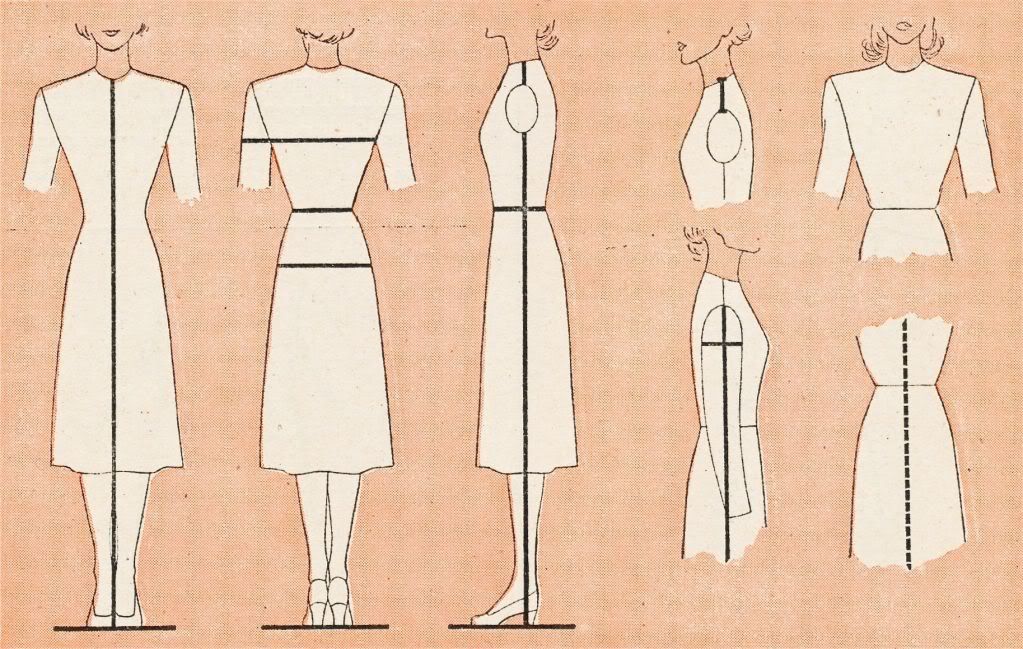Be sure to wear all the right supportive undergarments and shoes. You're on your own for the hair-do!
"If you check your pattern with your measurements and make adjustments before cutting your fabric, fitting your dress will be easy.
Try your dress on right side out and stand before a long mirror. You should have a basting thread from top to bottom in the center back and front (unless there is a center opening serve as well to check the perpendicular line).
Keep the picture of the garment before you while you fit. It can be tacked to the corner of your mirror. You need pins and a tape measure also.
Pin the shoulder pads in place before you begin your fitting.
These diagrams show how your garment should hang. If seams or darts must be taken up or let out to gain the desired effect, pin the corrections and transfer the change with chalk on the wrong side after you take the garment off.
Lengthwise threads of the material down center front and center back should be perfectly straight and perpendicular to the floor. (Except in a bias cut dress).
Crosswise threads Should be straight across figure and parallel to floor at bust and hip.
Underarm seam should fall in a straight vertical line from the center of the arm pit to the floor.
Regulation shoulder seams should be directly on top of shoulder, sloping neither to the front nor the back.
Garment should be loose but without wrinkles at the bust line to give ease, and allow arm to move freely. About 4 inches larger than bust measurement is usual allowance.
At a point about six and a half inches below the top of the sleeve the crosswise grain should run parallel with the floor and the lengthwise grain parallel to the underarm seam. It should allow for movement of upper arm It should be without wrinkles. Darts or gathers in long sleeve should come at the elbow.
Skirt should fall straight down from hips allowing ease to sit and not pull or cup up under when standing."

